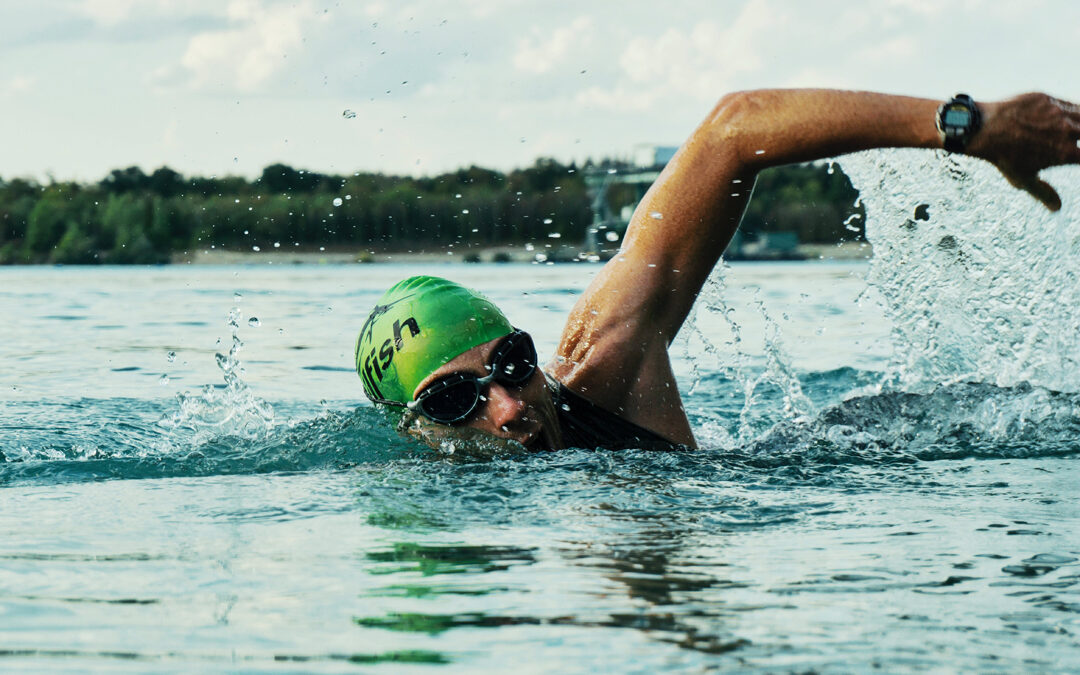Swimming in open water is an exhilarating yet intimidating experience for many triathletes. The vast expanse of the open water, the absence of pool walls to guide you, and the unpredictable nature of the environment can trigger anxiety and apprehension.
However, with the right mindset, training, and techniques, you can overcome open-water anxiety and become a confident swimmer in triathlons.
Mindset is Key:
Overcoming open-water anxiety starts with a strong and positive mindset. Understand that it’s natural to feel nervous about swimming in open water, especially if you’ve spent most of your swimming career in a controlled pool environment. Acknowledge your fears, but don’t let them control you.
Get Comfortable in Open Water:
The more you expose yourself to open-water swimming, the more comfortable you’ll become. Join open-water swim sessions or find a local swim group that practices in open water.
Practice Sighting:
Sighting is a crucial skill for open-water swimming in triathlons. To stay on course, you’ll need to lift your head and look ahead periodically. It’s essential to practice this skill in the pool and during open-water training sessions. Sighting too frequently can slow you down, so finding the right balance is necessary.
Train for Different Conditions:
Open-water conditions can vary greatly. You may encounter waves, currents, wind, and varying water temperatures. Training in various conditions will help you adapt and build confidence. If possible, try to experience these conditions before your race to become more familiar with them.
Wetsuits and Swim Buoys:
Wetsuits provide buoyancy and insulation, making open-water swimming more comfortable. Wearing a well-fitted wetsuit can give you added confidence and reduce the anxiety associated with the cold water. Some triathlons also allow swim buoys that provide additional buoyancy and serve as safety devices. These can be particularly reassuring for novice open-water swimmers.
Relaxation and Breathing Techniques:
Staying calm and controlling your breathing is essential to overcoming open-water anxiety. Practice relaxation techniques, such as deep breathing or mindfulness, to stay composed in the water. Focus on rhythmic and controlled breathing to maintain a steady stroke and reduce anxiety.
Race-Day Preparation:
On the triathlon day, arrive early to acclimate to the surroundings and get comfortable with the water. Familiarize yourself with the course and the location of buoys. A warm-up swim can help calm your nerves and prepare you for the start. Lastly, don’t rush; start at your own pace and allow your body to adjust to the open water gradually.
Seek Guidance and Support:
If open-water anxiety is a significant hurdle for you, consider seeking guidance from experienced triathletes or hiring a coach. They can provide valuable tips, techniques, and support to help you overcome your fears. It’s also a great idea to connect with fellow triathletes who may share similar concerns and experiences.
Open-water anxiety is a common challenge for triathletes, but it’s not insurmountable. By adopting a positive mindset, practicing in different conditions, developing sighting and relaxation techniques, and seeking support, you can conquer your anxiety and become a confident open-water swimmer.

